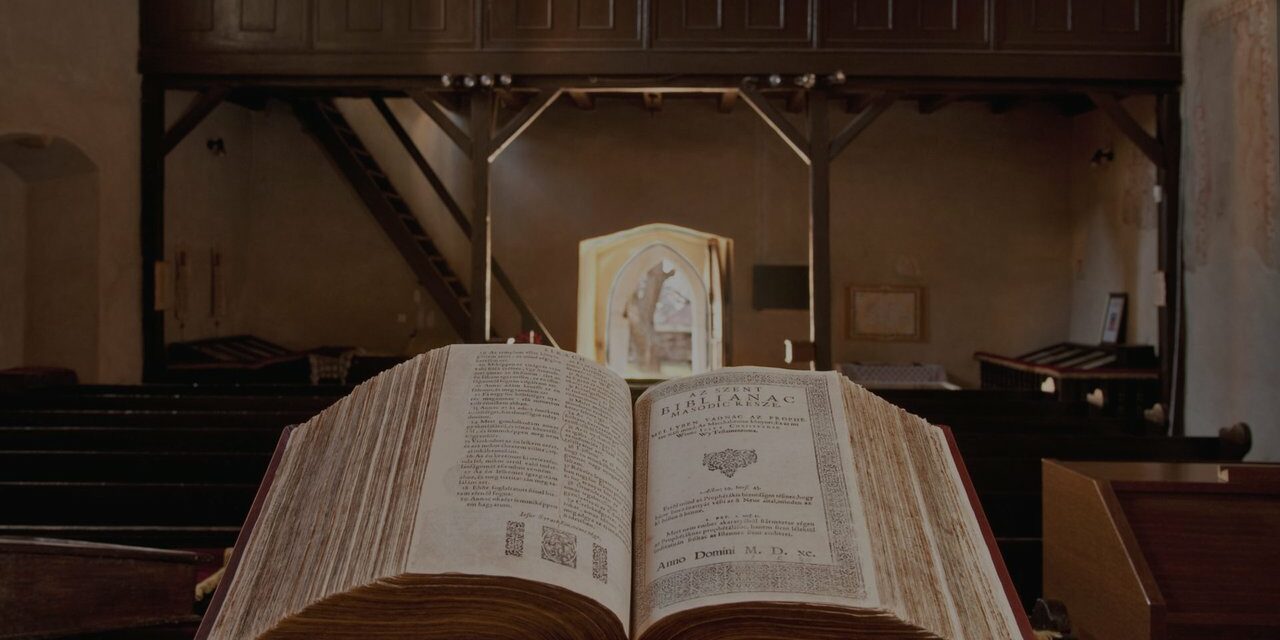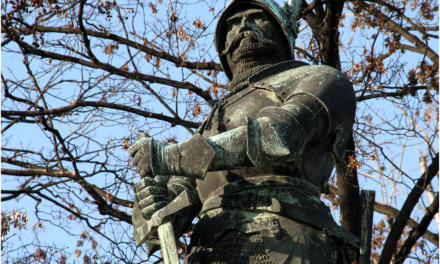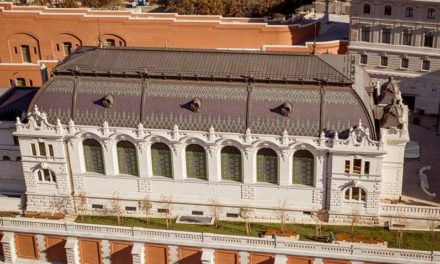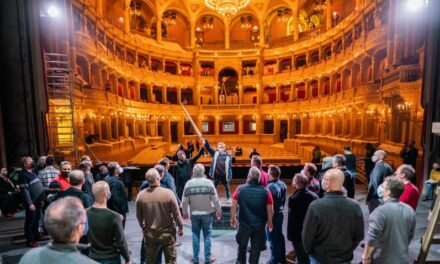In his eulogy, László Trócsányi, the rector of the Károli Gáspár Reformatory University, stated that the first complete Hungarian edition of the Bible is one of the most valuable treasures of our national culture, which clearly established and has defined the use of the Hungarian language to this day, and thus is both a symbol and an objectified part of our Hungarian identity.
The ceremonial presentation of the Hungarian Heritage Award took place on June 18 in the hall of the Hungarian Academy of Sciences (MTA) for the 101st time, at which six awards were awarded this time.
The Hungarian Heritage Award was awarded to Zoltán Balassa's local history, publication and national knowledge activities, the Déli harangszó, Gabriella Igyártó's folk art tradition preservation work, the Jászság Népi Együttes' folk dance culture preservation activities, Zoltán Krulik's and Makám's ensemble music, and Vizsoly - the service of the Vizsolyi Református Egyházközség and the Vizsoli Bible.
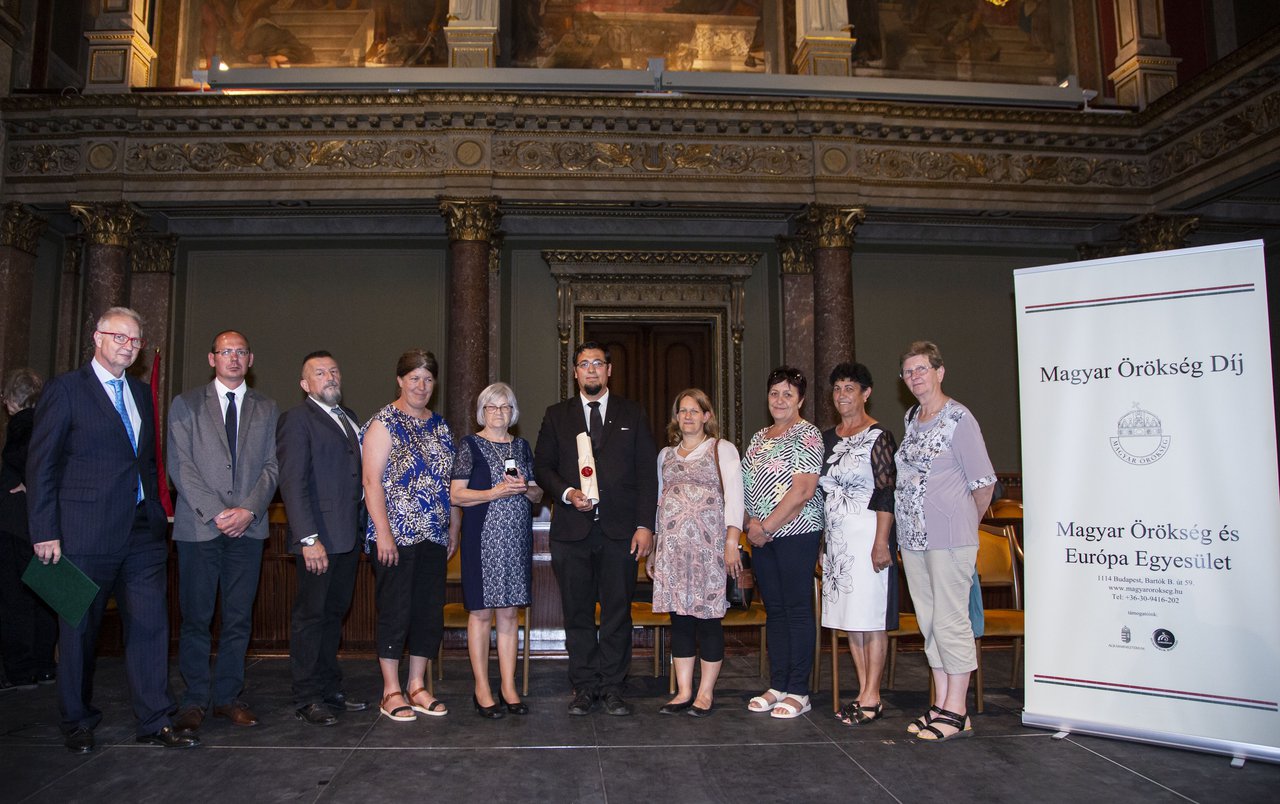
Source: reformatus.hu
In praising Vizsoly, László Trócsányi, the rector of the Károli Gáspár Reformed University, emphasized that the members of the Vizsoly Reformed Church are guardians and cultivators in the purest and noblest sense of the words. They guard the heritage, the Vizsolyi Bible, and cultivate and cherish the respect for the written Word left to them in Hungarian, in print. The preserved heritage permeates, shapes and reforms our lives. He said that Vizsoly is the spiritual background of a strong rope woven from the noblest threads of our Reformed self-awareness, Hungarian self-identity and Europeanness, which surrounds the Vizsoly Bible, which symbolizes these, and at the same time keeps its guardians and nurses. The legal and technical protection of our cultural heritage, the organization of programs that create and maintain identity related to heritage, the community life of faith-builders and confessors, as a community that undertakes service, deserved the recognition, added the rector of the university.
In relation to the history of the Vizsolyi Bible, which was made with European and Central European background and tools, during a difficult historical period, he recalled that Károli, who was presumably of Serbian origin, fleeing from Charlemagne from the Turks, settled in Gönc after his studies in Germany, and made it from 1586 "Invoking the name of God, with a few pious learned brothers, the translation of the Bible as a whole".
Within a year and a half, the work was printed on Polish paper using the latest technology of the time, with new Dutch characters, on July 20, 1590, thanks to the generous support of the later prince, Zsigmond Rákóczi, in his workshop moved from Galgóc Mantkovits to Vizsoly.
The Vizsolyi Református Egyházközség, which according to its creed is the Reformed Bethlehem, fulfills its cultural Protestant mission with living faith - added László Trócsányi, emphasizing that the basis of faith according to our Reformed teaching is Writing: Sola Scriptura. Its preservation and promotion is the service of the Vizsolyi Reformed Parish.
The curators of the Foundation for Hungary decided in 1995 to invite a committee to establish the Invisible Museum of the Hungarian Spirit under the name Hungarian Heritage Award (MÖD). The judging committee was previously headed by Imre Makovecz, Ferenc Mádl, György Fekete and József Hámori. In March 2003, the Hungarian Heritage and European Association (MÖEE) took over the management of the Hungarian Heritage Award.
Source and image: reformatus.hu

